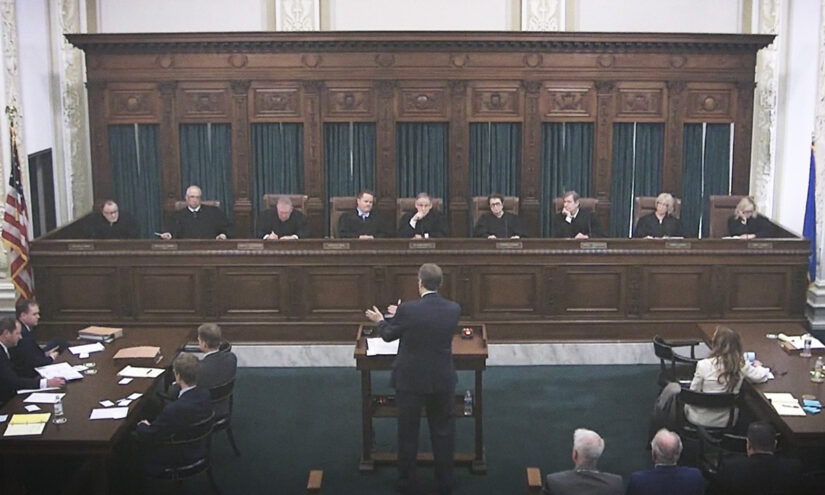During this summer, a team of students from MIT embarked on a journey to the sou …
Oklahoma Justices Question Catholic Charter School’s Role as Test Case
Emma Wordsmith

Oklahoma Attorney General Gentner Drummond cautioned the state Supreme Court that they are on track to breach the law come July 1. This case is pivotal as it delves into the intersection of church and state in educational settings.
The state is gearing up to allocate public funds to St. Isidore of Seville Catholic Virtual School starting July 1. This funding will go towards hiring teachers, curriculum planning, and gearing up for the school’s opening in August. Drummond criticized members of the Oklahoma Virtual Charter School Board for approving a charter with the Catholic church, accusing them of betraying their office oath.
Amidst legal debates, the school’s attorney, Michael McGinley, contended that St. Isidore remains a private entity, emphasizing that the state charter did not fundamentally alter its nature. He stressed that the school existed independently before receiving the charter and would persist even if the charter were revoked.
Attorneys on both sides presented contrasting perspectives on St. Isidore during the court proceedings. The charter board and school’s lawyers framed it as an extension of recent Supreme Court decisions favoring faith-based schools’ access to public funds. However, Drummond and public school advocates view this case as a potential deviation from established constitutional principles, beyond merely reshaping charter regulations.
“This case is not about exclusion of a religious entity from government aid,” Drummond asserted, highlighting concerns about creating a religious institution through state actions. The justices expressed skepticism about the school’s stance, raising concerns about setting precedent and the potential implications.
The narrative surrounding St. Isidore’s legal battles underscores broader conversations about school choice. Erin Brewer, a parent challenging the school’s legality, emphasized the democracy’s core tenets and the government’s role in upholding religious neutrality.
Photo Caption: Archdiocese of Oklahoma City
Phil Sechler, representing the charter board, rebutted concerns about funding St. Isidore, arguing that family choice, not state imposition, drives enrollment patterns. He highlighted existing criteria and educational standards that schools, regardless of religious affiliation, must meet to secure charters.
While Oklahoma supports a tax credit scholarship up to $7,500 per student, dubbed the Universal Parental Choice program, McGinley noted that many families find this insufficient for private school tuition. Charter schools serve as alternatives bridging financial gaps for families seeking quality education.
Preston Green, an education and law expert, views this case as multifaceted, debating not only religious dimensions but also public education financing implications. He anticipates potential Supreme Court involvement, suggesting conservative justices might lean towards supporting the Catholic church’s stance.
St. Isidore aims to welcome 500 students initially, with plans to scale up enrollment to 1,500 by the 2028-29 academic year. Green dismissed the notion of eradicating charter schools as a quick fix, emphasizing their substantial presence in educational landscapes.
As legal debates continue, the focus shifts beyond state law nuances to the broader constitutional realm. Nicole Garnett, a Notre Dame law professor involved in the application process, is optimistic about St. Isidore’s prospects in serving students, pending a favorable court ruling.


